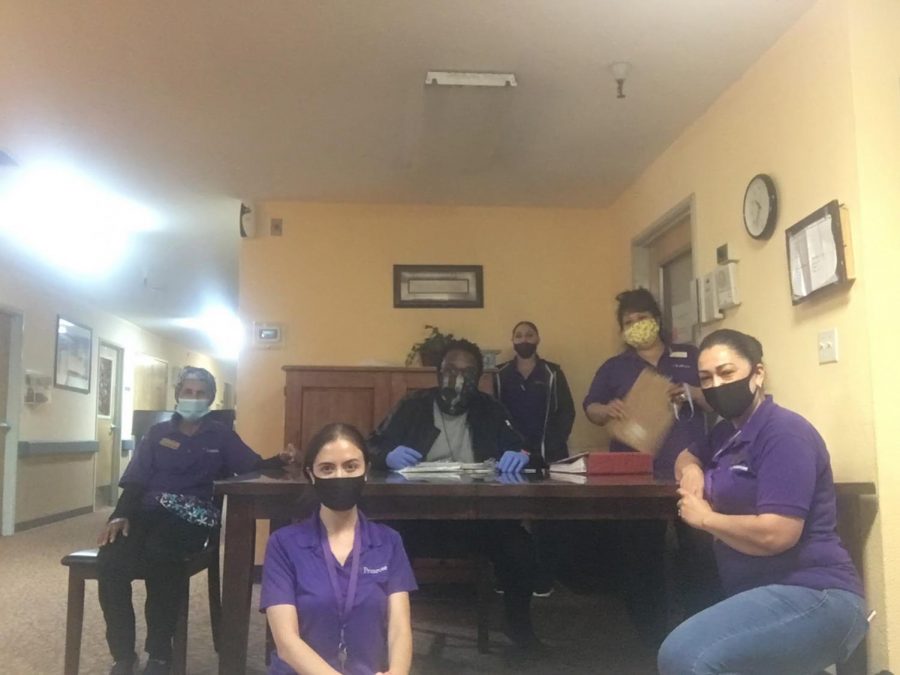Two months ago, COVID-19 changed everybody’s lives. We used to have a “normal” life, but now times have changed. From the moment we stopped hugging each other, it generated a big change in our lives. Some people say it started because the planet needed to take a breath. The truth is we all have to make a change to stop spreading the virus; we have a solution. Meanwhile, some people are taking a long-term vacation while others have worked hard since the beginning of this crisis. These hard workers are called “essential” and have sacrificed a lot to serve society. For essential workers there is no vacation, because they put their lives at risk to give society good attention.
I am working at Primrose, a facility where we take care of many seniors with dementia. At this time, I’m considered an essential worker. I’ve been working since the beginning of the lockdown. We have to take care of ourselves to protect the residents. It sounds easy; however, it is not. To avoid having contact as much as possible, we have to separate them into groups with less than 10 people, which is really hard to maintain. We must wear a mask all the time, as well as gloves. Also, we are monitored; before we get into the facility, they check our temperature and level of oxygen saturation in blood. All the staff must restrict unnecessary activities, to avoid being exposed in public places. These preventive measures are necessary to protect each other, but mainly to protect the seniors.
Visitors are not allowed at this time. This preventative measure has been the one with the greatest impact on residents. For those who know how seniors are in this condition, they will know that people with dementia need attention, especially from relatives. Many of the residents think that their children, or other relatives, have forgotten them. This situation triggers a change of behavior in seniors. They might get aggressive or feel irritated because they are missing their families. It is not easy to manage this situation; nevertheless, we try to keep them in touch with their families, by “Facetime,” phone calls and email.
This crisis has been hard for the staff; however, it has been hardest for the residents, who are confused because they do not know what is going on out there. We try to keep calm among them, so we tell them that relatives will come pretty soon, and that they love them so much. It is hard to hear the residents asking for their relatives because some of them know the situation, however, we give them peace of mind in every question they ask.
COVID-19 has exceeded expectations; we do not know how long this pandemic is going to continue. The only thing that I know is that being an essential worker is a big responsibility. I share most of the time with them, now they are like part of my family. I feel sadness for them, but I feel satisfied at the same time, due to the effort that my coworkers and I are carrying out. We all do our best every day to give them quality care, even in this difficult situation. I cannot wait for the day when we finally beat this pandemic and can hug each other. This crisis is in our hands, we can overcome this pandemic together.



Katherine Luevano • May 13, 2020 at 9:02 pm
Great article! Very well written and articulate. The author sounds lovely.